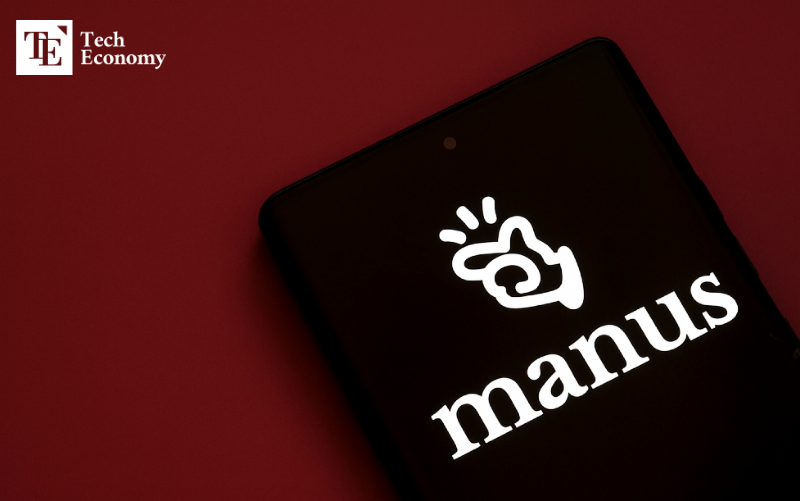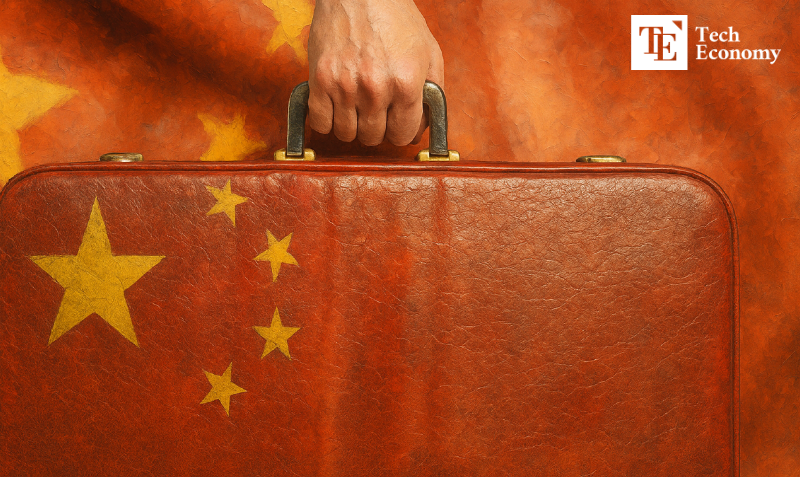Chinese Firms Abandoning Home Turf Amid Regulatory Clampdowns and U.S. Export Curbs Manus, Dubbed the ‘Second DeepSeek,’ Joins the Exodus
Input
Modified
Chinese Firms Renouncing National Identity Impact of Domestic Sanctions and U.S. Export Restrictions Exodus Toward Jurisdictions with Lighter Regulatory Burdens

Chinese companies are increasingly renouncing their domestic roots as Beijing’s regulatory pressure converges with U.S. export restrictions. The latest case is Manus, an artificial intelligence (AI) service once hailed by President Xi Jinping as the “second DeepSeek,” which has reportedly shifted its headquarters out of China. Geopolitical headwinds, funding constraints, and Beijing’s stringent oversight have combined to push the startup abroad. The episode underscores a broader “China exodus” trend spanning AI, fashion, e-commerce, and solar energy, particularly among Chinese firms with global ambitions.
Manus Relocates Headquarters to Singapore
According to Chinese state media reports on the 18th, Butterfly Effect Technology, the developer of Manus, has shuttered its WeChat and Xiaohongshu social media accounts and relocated its headquarters to Singapore. In the process, the company terminated more than 80 staff, retaining only 40 core engineers.
Unveiled in March, Manus drew global attention as the “world’s first fully autonomous AI agent.” Such agents operate independently once given a goal, making decisions without human intervention. Hailed in Silicon Valley as the first AI capable of replacing humans—seen by some as a shock surpassing DeepSeek—it was widely covered by outlets such as Forbes. Manus outperformed OpenAI’s February release DeepResearch on the GAIA benchmark, the industry’s key AI agent performance test, fueling speculation that it marked a “second DeepSeek moment.”
Beijing quickly threw its weight behind the project. State media introduced it publicly, and regulators granted operating permits for Butterfly Effect’s AI assistant. The Beijing municipal government even announced that the company’s earlier Monica AI, in its Chinese-language version, had passed the mandatory registration process for generative AI apps—signifying CAC approval. Such a selective disclosure, outside the CAC’s usual bulk announcements, was viewed as highly unusual.
Monetization Limits Amid Free-Use Mandates
While Butterfly Effect officially cited “operational efficiency and a global strategic pivot” as the rationale for relocating to Singapore, industry observers highlight geopolitical frictions and capital constraints as decisive. Access to Western funding and markets necessitated distancing from mainland China.
In May, Butterfly Effect sought to raise $75 million in Series B funding led by U.S. investor Benchmark Capital, but the deal stalled under scrutiny from the U.S. Treasury’s “Outbound Investment Program.” The Trump administration’s outright ban on investments in Chinese AI projects seen as enhancing Beijing’s capabilities has further curtailed Manus’s U.S. prospects.
Beijing’s regulatory intensity also played a role. China’s generative AI framework requires developers to embed “core socialist values” in outputs and register algorithms with authorities before launch. “This means developers in China cannot freely explore,” noted the founder of a consulting firm, contrasting Singapore’s looser regime and ease of foreign company formation.
Monetization obstacles within China exacerbated pressures. Domestic AI services are often confined to local markets and must be offered free under state directives. Given the capital-intensive nature of AI infrastructure—particularly data centers—this model entrenches structural losses.

Corporate Exodus Accelerates Beyond AI
The “de-Chinafication” wave extends far beyond AI. Confronted with geopolitical risks, a growing number of Chinese companies are engaging in corporate “washing” to shed their national identity. The most notable case is Shein, the fast-fashion giant. Founded in 2008, Shein shifted its headquarters to Singapore in 2023, deregistered in Nanjing, and later established subsidiaries in Ireland and Indiana, while retaining U.S. lobbying firms in Washington, D.C. Analysts view this as groundwork for an American IPO, with Shein eager to distance itself from allegations of forced-labor supply chains.
E-commerce powerhouse Pinduoduo likewise moved its corporate registration to Ireland while situating Temu, its global shopping app, in Boston. Jinko Solar, which produces 10% of the world’s photovoltaic panels, relocated production abroad in 2023 to sidestep U.S. restrictions on Chinese solar exports.
A similar approach underpins ByteDance’s bifurcation strategy: TikTok for global markets, Douyin for domestic users. In 2022, TikTok’s headquarters moved from Beijing to Singapore, reinforcing efforts to separate its international identity from its Chinese roots.
Together, these cases highlight an accelerating trend: Chinese firms, confronted with regulatory suffocation at home and rising barriers abroad, are abandoning their national identity in pursuit of survival in global markets.





















